Search Images
Browse Content (p. 1766)
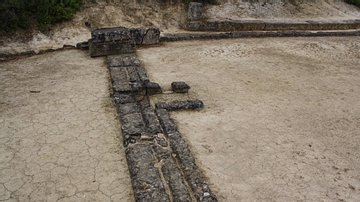
Image
Stadium Starting Block, Nemea, Greece
The starting line or 'balbis' consisted of 12 lanes with posts held in vertical sockets between which a catapult mechanism or 'hysplex' of tensed rope would prevent any athlete from false starting. A judge would simultaneously release the...
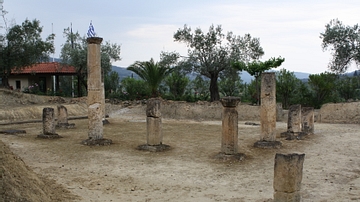
Image
Athletes Locker Room, Nemea, Greece
The 'Apodyterion' or athletes locker room was where athletes would have made their final preparations before entering the stadium via a passageway and tunnel linking the two. The building originally surrounded a small court on three sides...

Image
The Bath, Nemea, Greece
The Bath (last third of the 4th century BCE) was used for washing and bathing by athletes (and possibly also spectators) during the games. A large central pool - waist deep - is flanked by two tub rooms with wash basins. The building seems...
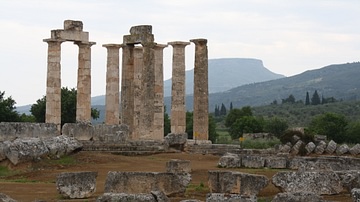
Image
Nemean Temple of Zeus
The temple of Zeus at Nemea was constructed in c. 330 BCE and replaced an earlier temple which had stood from the 6th to 5th century BCE. Inside was a cult statue of the god. The temple was composed of an exterior Doric peristyle (6x12 unusually...
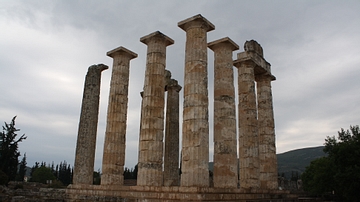
Image
Doric Temple of Zeus, Nemea
The Doric temple of Zeus, Nemea. c. 330 BCE.

Image
Jupiter
This marble head (1st century CE) comes from a statue of the Roman God, probably copying the cult statue of Zeus from Olympia in pose i.e.: seated on a throne. The head was found in Milan near the Castle Sforzesco in the quarter known since...
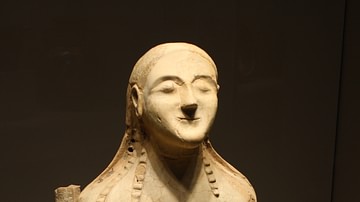
Image
Seated Demeter Figurine
Terracotta statue of a throned divinity, probably Demeter (Goddess of harvests and earth fertility). Late 6th, early 5th century BCE, from Sicily. (Archaeological Museum, Milan)
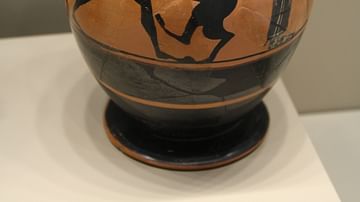
Image
Hercules & The Nemean Lion
This Attic vase shows Hercules wrestling the Nemean Lion in one of his 12 labours. Late 6th, early 5th century BCE. Athena looks on from the right.(Archaeological Museum, Milan).
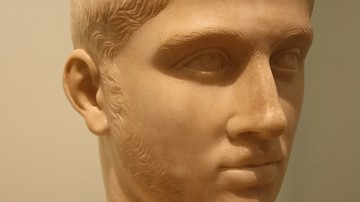
Image
Severus Alexander Bust, Milan
First half 3rd century CE, this marble bust depicts Emperor Severus Alexander (225-235 CE). Unknown provenance.
(Archaeological Museum, Milan)
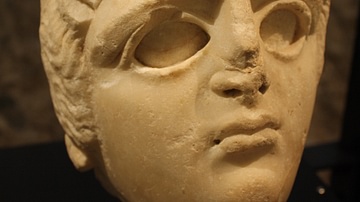
Image
Roman Theatre Mask
This marble piece shows a 2nd century CE theatre mask being held in a hand from a statue, probably of a Muse. As tragic and comic masks depicted an open mouth this is probably a pantomime mask. From Cesarea Marittima, Palestine. (Archaeological...